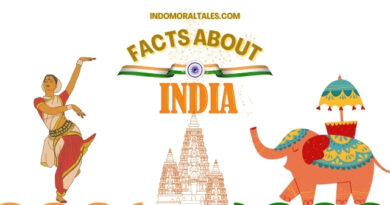35 Facts about English Language
- Can you believe that over 1 billion people speak English as their second-best language? That’s more people than you can imagine! English is the most popular additional language learned worldwide, and it is one of the coolest facts about English language.
- The cool story of English started over 1,500 years ago! Long ago, tribes from Germany came to live in Britain. They began speaking the earliest forms of our language. So, English has been spoken for a super long time!
- Did you know English is always growing? Every three months, new words are added to the dictionary. Writers like Shakespeare helped make English what it is today by inventing over 1,700 new words! We can thank them for the fun words we use.
- English spelling can feel tricky because there aren’t strict rules to follow, which is one of the surprising Facts about the English Language. Words are sometimes spelled differently than how they sound. This makes reading and writing more exciting as you decode each word!
- Can you think of any fruits hard to rhyme with aside from “orange”? Rhyming is trickier than it seems!
- Awesome ambigrams look the same upside down or backward! See if you can find any in your spelling words. These will blow your friends’ minds.
- With just one vowel sound, “screeched” contains the most letters for a single-syllable word. Your tongue sure gets a workout, saying that one, making it among the interesting Facts about the English Language! Facts about India for kids
- Ever heard of an isogram? Words like “noon” use each letter the same number of times. They give our brains fun puzzles to solve.
- Homonyms are words that can mean different things based on how they’re used. For example, “bank” refers to money or a river’s edge.
- The tiny words “to” and “be” are probably in every sentence you read or write. They occur so habitually that we barely notice!
- Did you also know the letter Q is never by itself? It always brings along its pal U. They’re like peanut butter and jelly!
- With around 60 languages within England alone, dialects developed differently throughout the country. This led to today’s many regional accents!
- “Set” can mean so many things – more than any other word. From emotions to groups of objects, it’s a versatile vocabulary word, setting it in the cool Facts about the English Language category.
- Did you know “television” comes from Greek for “seeing from a distance”? Pretty perfect since that’s what TVs let us do!
- Have you ever heard a cool simile like “jumping like frogs” or “as bright as the sun”? They make descriptions more fun by comparing two things.
- Capitalization changes the meaning of words like “Polish” and “Polish.” These capitonyms offer a neat twist! Check facts about insects.
- Words like “happy” become “happily” by changing the ending to “i” when adding suffixes. Isn’t English spelling crazily creative?
- Slang words are informal and change quickly as new ones emerge. Part of what makes language living and evolving!
- The “ough” sound has eight possibilities! Say those combinations aloud – “through, cough, bought, dough” – and laugh at their variety.
- Believe it or not, English has over 1 million words. That’s way more than any other language. Our options are endless!
- The study of words is called a lexicon. It explores concepts like cognates, homographs, and onomatopoeias. Vocabulary is endlessly entertaining!
- Though spelled differently, “night” and “knight” sound alike. Homophones challenge us to think more deeply about meaning versus form.
- Most people use around 2,000-5,000 words daily. But very educated English speakers know approximately 20,000! You’ll get there with practice.
- Tongue twisters are meant to entertain while also strengthening sounds. Try saying, “She sells seashells…” rapidly ten times!
- Adjectives describe nouns like “big dog,” while adverbs modify words like “run quickly.” Learn the roles of parts of speech. Check facts about human body.
- Think of words like “pasta” and “corona” – how English adopts loanwords from other world languages for its vocabulary.
- Ellipses (…) can imply a thought trailing off or mean something was left out of a quote. They allow for subtle reflection.
- Words from places and names are called eponyms, such as “sandwich” and “macaroni.” Think of others?
- The space bar separates words for easier reading unless they’re contractions like “don’t” with no space between.
- Relative pronouns introduce groups of words and connect them to other people or ideas, using words like “who” and “when.”
- Compound words merge two words into one new one, changing meaning, as in “daydream” and “sunshine.”
- Possessives (‘s) show ownership. Contractions omit letters such as “can’t.” This punctuation variety enriches how we write!
- Closing punctuation sits at the sentence’s end, while questions and exclamations appear inside the final quote. Do you think you spotted them?
- Abstract nouns are notions like “happiness” unseen by our five senses versus concrete tangibles.
- Transition words flow between ideas by connecting like “however,” “moreover,” and “nevertheless.” They build cohesion.




